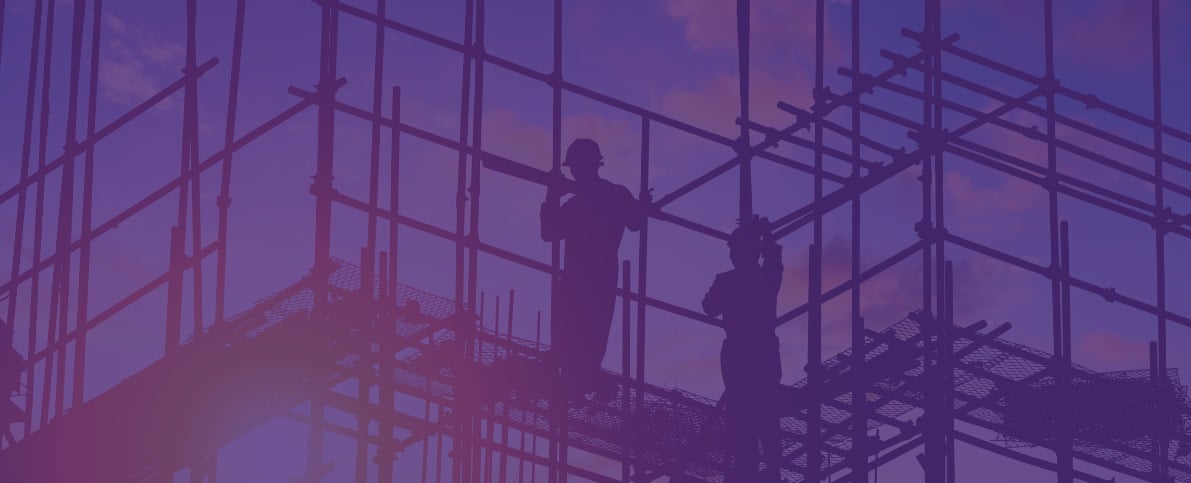International infrastructure projects present significant challenge and require sound financial and commercial advice at each stage, from strategy to delivery to management.
To navigate these challenges successfully, you need to answer some key commercial and financial questions at each stage of the project life cycle – beginning with the business case, through commercial structuring, procurement and bid support, and securing funding and finance, and finally to delivery and management.
With 25 years’ experience in shaping exciting infrastructure projects around the world, we’re there to guide you with world-class advice every step of the way.
Why Grant Thornton
With us, you’ll get a partner-led team experienced in advising throughout your infrastructure project’s entire life cycle. We're highly collaborative, bring a deep understanding of the process you're embarking on, and have global experience supporting project promoters to find clarity on the key financial and commercial considerations that will help ensure your project is a success.
How we can help you
Many projects struggle or fail at an early stage because promotors don't balance their aims and objectives with nuanced and realistic thinking about how those objectives can be delivered effectively, sustainably and at what cost. These kinds of failures can be prevented by developing a clear and well-rounded strategic analysis of the project and its context early in the process.
What you need to consider:
- What is really the case for change – why do anything?
- How is the project the best route to address those problems and opportunities?
- Will the benefits really outweigh all of the costs?
- Is the project financially and commercially realistic, including in the long term?
Having a clear and realistic understanding of a project puts a promoter (whether public or private) in a strong position to gain buy-in from its stakeholders, secure funding and finance, and enter into robust agreements with other parties necessary for delivering the project successfully. A popular way of capturing this, for both public and private promoters, is through a comprehensive business case.
We have global experience of producing high-quality business cases in a variety of sectors, to get projects off the ground and guide them throughout their development.
Developing the right commercial structure for delivering a project ensures that all the necessary roles for delivering the infrastructure will be filled, whether these roles are providing finance, construction, or operation and maintenance. It also ensures that these players’ primary interests are related to project success. If the commercial structure is not optimal, it can lead to the various players working against each other, poor value for money, project benefits not being fully realised or, in a worst case, even assets going unused.
What you need to consider:
- What are the key roles and who should take them on?
- Who should be responsible for what risks, to incentivise success?
- Is there the necessary interest from the private sector and is it willing to take on the risk?
- How can contractual incentives be used to optimise this risk allocation?
- How is the infrastructure to be operated and maintained – after completion and efficiently in the long term?
- How does the arrangement impact on public sector financial accounting?
We have experience in structuring projects around the world, helping to bring together a mixture of public and private players in a way that means their success comes from success of the project. We present choices and clearly reasoned recommendations to clients about the best commercial structure for their project and we do this in terms our international clients can understand.
Securing providers to fulfil roles in delivering, operating and maintaining infrastructure can be significantly more challenging and time-consuming than more routine types of procurement – both for the procuring authority and for bidders.
Issues procuring authorities need to address when planning a procurement:
- Is there sufficient market interest in the opportunity within what might be a specialist or international marketplace?
- Are the requirements firm enough to procure and contract against?
- How can evaluation properly reflect technical merit and a suitable trade-off with price, while being defensible against legal challenge if this arises?
- What information will bidders require in order to develop competitive bids and to avoid the risk of claims once contracted?
Our depth of experience on both sides of public procurement mean we can give confident and insightful advice to procuring authorities or bidders.
For procurers we can:
- plan and lead market engagement to encourage and gauge interest
- support decisions on which procurement procedures to use
- draft submission requirements for the financial bid
- establish and carry out a robust evaluation methodology
- assure that the outcome of procurement is properly reflected in the final contract.
For bidders we can:
- help to establish a strong understanding of the project requirements and evaluation approach
- help develop proposals that are technically and financially robust.
There are a number of issues to consider in seeking finance for an infrastructure project, which can become significant obstacles if not addressed and planned for from an early stage.
What you need to consider:
- Is there full clarity on the affordability of finance payments and management of risk?
- How will finance be incorporated and how will this interact with other sources of funding such as government grants within the overall commercial proposition?
- If the project is to be delivered as part of a public-private partnership, should finance be sought separately or subsequently to the initial procurement?
- What type of financers are likely to be suitable?
- What is the capacity of the market to deliver and is there a need for a lead financer role to help coordinate a package of finance?
We have a detailed and sophisticated understanding of how funding decisions around public services are made, including the key impacts, opportunities and risks across a number of different sectors. We have existing relationships with the funder market, which can help you engage more effectively, and advanced capability in interpreting and analysing financial data to support your decision making.
Once a project has been delivered the long-term management and oversight becomes the focus to ensure it delivers the benefits it set out to and is managed as envisaged at the outset.
What you need to consider:
- What capabilities do your people need to manage delivery effectively?
- What are the commercial and financial risks and issues and how can they be managed?
- How can you build effective relationships with your key suppliers and what contract management approach is appropriate?
- How can you ensure an effective handover from procurement or mobilisation to in-life management teams to guarantee realisation of key benefits?
We are well versed in seeing projects through from strategy to delivery and management, giving us a unique perspective and ability to add value through the full project life cycle. Having this deep understanding of the end-to-end process allows us to foresee future issues, ensure future management is incorporated into contract design, produce contractual processes that are simple and easy to follow, and provide focused training and support to in-life management teams to facilitate knowledge sharing and long-term capability improvement.







